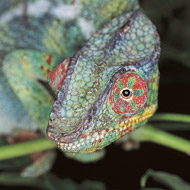New code of practice for exotic pets

The code particularly highlights the need to ensure pets do not escape into the wild.
A new code of practice has been released to make exotic pet owners and traders aware of their responsibilities, in a bid to protect native wildlife and exotic pet welfare.
The new guidance has been created by the Ornamental Aquatic Trade Association (OATA) and the Reptile and Exotic Pet Trade Association (REPTA).
Ornamental fish and reptiles account for the majority of non-native pets in the UK. The code encourages responsible ownership, in particular the importance of making sure pets do not escape and cause problems for native wildlife.
Exotic pet owners are also advised of the need to dispose of used bedding and pet litter properly, ensuring eggs and pests cannot escape into the wild.
The code also urges people to research the welfare needs of their pets and prepare themselves for meeting these needs throughout the whole of the pet's life.
OATA chief executive Keith Davenport said: "We want this code to be simple and understandable for owners so that they understand the responsibilities they have when they take on a pet.
"The message is simple – we want people to understand how important it is not to release or allow their pet to escape into the British countryside because it’s cruel and can damage our native wildlife."
Traders also also urged to ensure customers understand the commitment they are making when they buy a pet, and understand what is involved in keeping it.
They are also reminded of their responsibility to ensure to the best of their ability that pets are free of pests and parasites when they are sold.
Visit the OATA website to read the code of practice.



 The RCVS has announced a new version of its 1CPD mobile app, with enhanced features for veterinary surgeons and veterinary nurses to record their continuing professional development.
The RCVS has announced a new version of its 1CPD mobile app, with enhanced features for veterinary surgeons and veterinary nurses to record their continuing professional development.